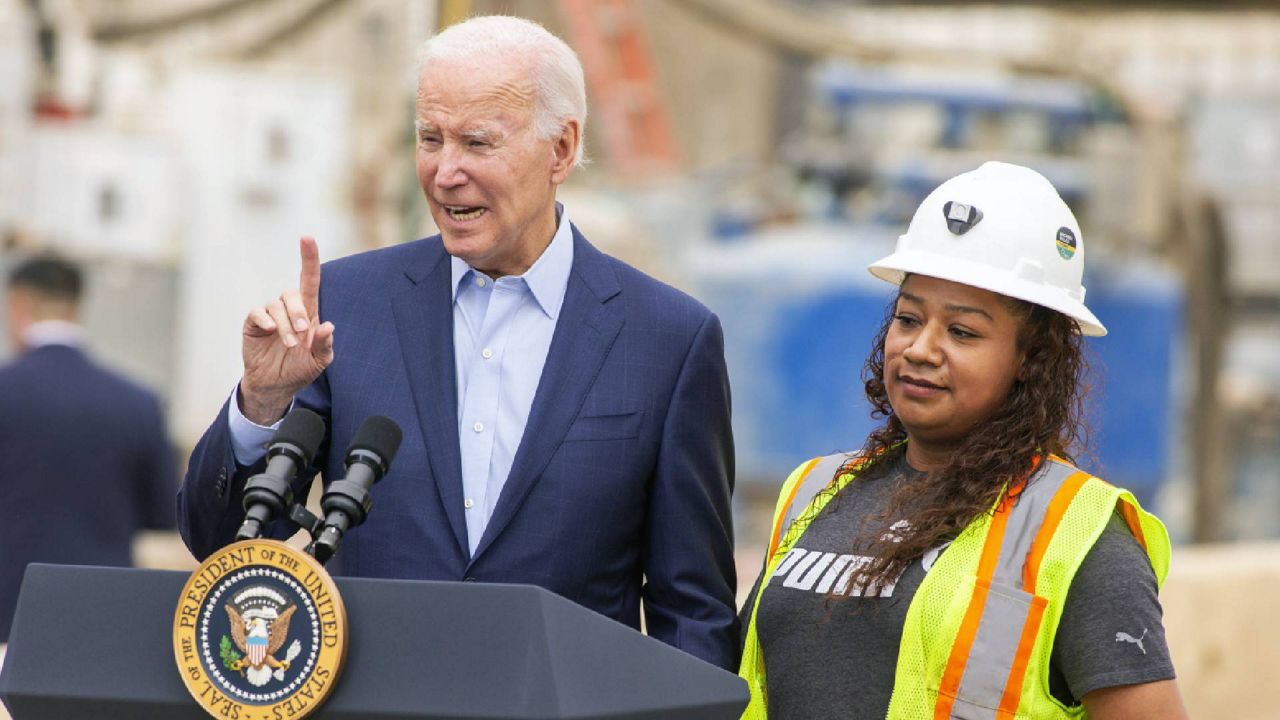The White House on Thursday launched an effort to speed up projects funded in the $1.2 trillion infrastructure bill passed last fall, as about $180 billion has so far been approved to flow out to states for improvements like roads, bridges, broadband internet, clean water and more.
State and local leaders, top infrastructure officials, logistics experts and vice president Kamala Harris all gathered at the White House for a summit on accelerating infrastructure — a multilevel effort to boost project efficiency to get things done on time and on budget.
“We cannot squander the opportunity before us. We must seize it,” said White House infrastructure law coordinator Mitch Landrieu, noting speed was necessary to “fully maximize the benefits of the law.”
Inflation has already taken a bite out of infrastructure projects at a state level, as Spectrum News reported this summer, causing some major improvements to be delayed while funds fill in the gaps of higher costs.
The White House summit on Thursday was meant to highlight techniques and resources at the federal level to help projects get done faster — including technical assistance, permitting changes and staffing.
President Joe Biden spoke at one site on Thursday in Los Angeles, a new future metro line. The infrastructure law was the first major, bipartisan win of Biden's presidency, resulting from months of negotiations. And after years of inaction on infrastructure, the historic spending baked in to the law could be a major part of his legacy.
"We're providing our best days to be available to us. And they're ahead of us, not behind us. We just have to keep it going. And I know we can," he said.
Biden also promised more action to lower gas prices, saying they were "still too high" after a new report on costs showed that inflation is still high, up 8.2% from last year.
"We need to keep working to bring it down,” he said. “I'll have more to say about that next week.”
More than 90% of the money in the bipartisan Infrastructure Investment and Jobs Act will be distributed by non-federal agencies, so giving state, local, tribal and territorial officials guidance is key, said Transportation Secretary Pete Buttigieg at Thursday's summit.
“We're investing significant resources to help federal and project partners overcome three consistent roadblocks getting things done on time: lack of data, lack of technology and need for greater capacity.”
The Department of Transportation will launch a Project Delivery Center of Excellence, partly to convene project managers, builders, engineers and transportation officials to talk about the root causes of change orders, construction cost overruns and report on best practices.
The National Governors Association and a new Local Infrastructure Hub will offer support to state and local officials.
And the Biden administration earlier this year released a permitting “action plan” meant to speed up permit approvals and environmental reviews by boosting interagency coordination, allocating more resources and setting transparent goals and timelines.
Vice President Harris on Thursday cited her travels around the country viewing infrastructure improvements in the works, thanking officials for their effort to get things underway.
“I'm here to thank you for the hard work, the elbow grease that you are putting into making it real,” she said.
She later added: “But no patting ourselves on the back yet. This is just the next phase of, yes, great progress. It's the next phase where we ensure that the benefits that we intend actually hit the streets of America.”



